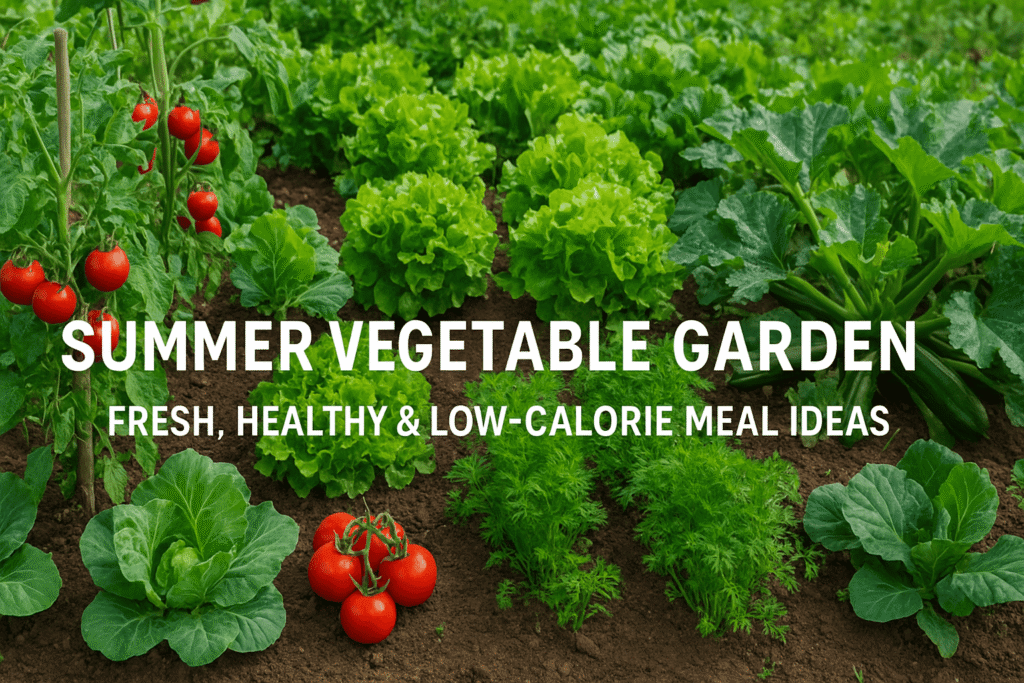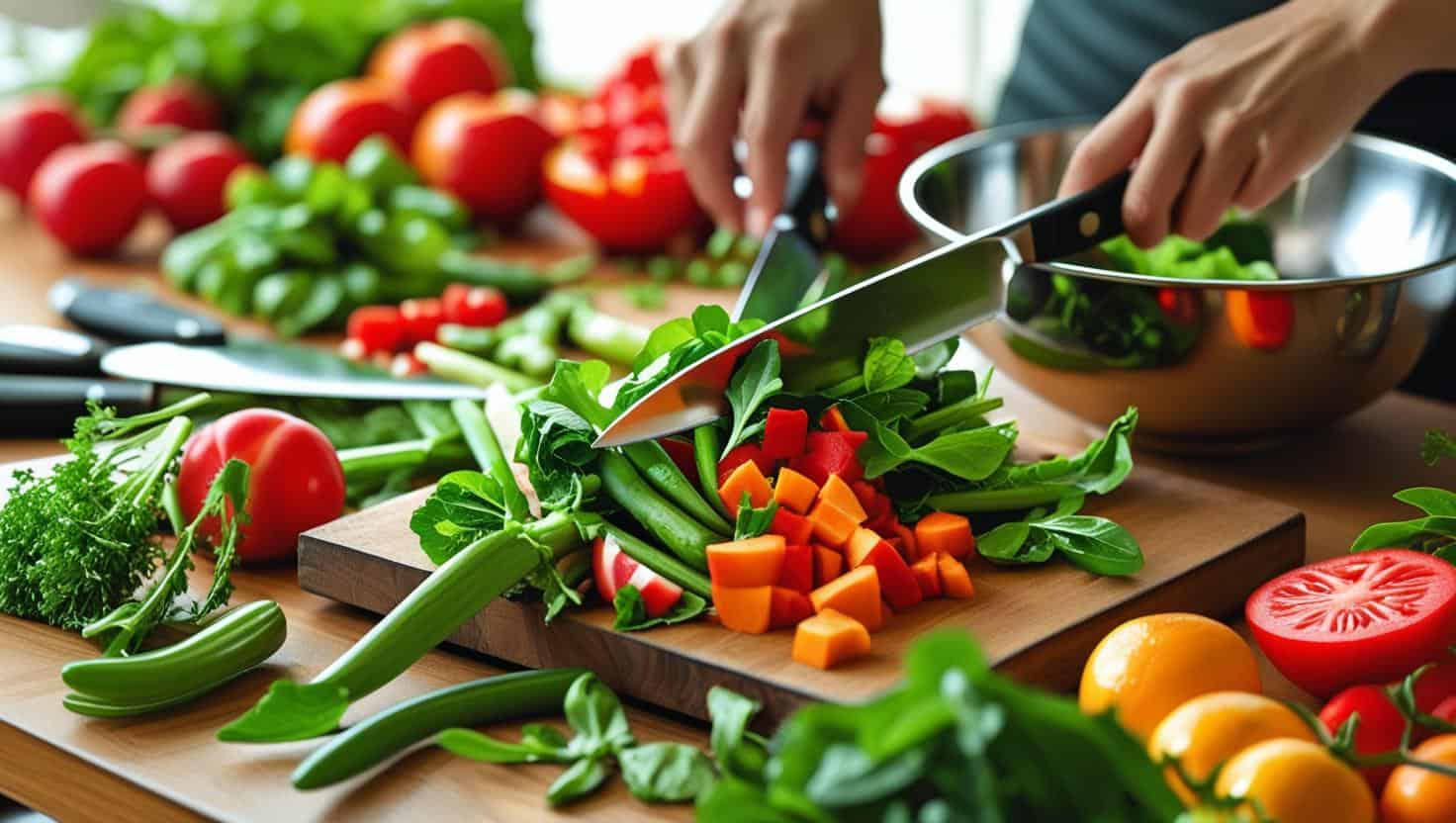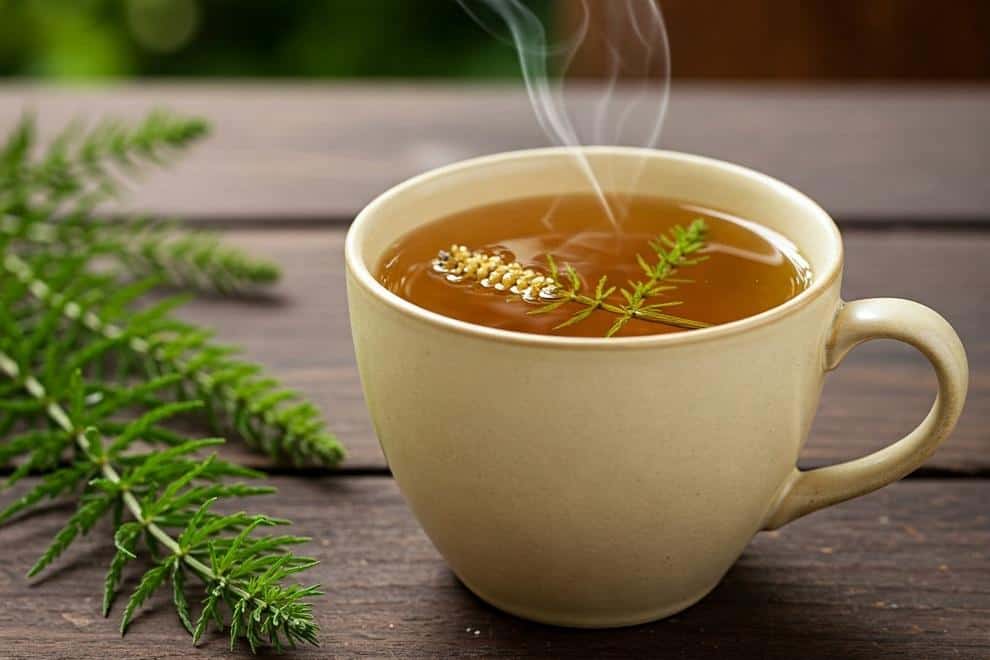The vegetable garden: the summer wild card
I’ve always believed that summer is the perfect time to fill my plate with fresh vegetables. In the morning, breakfast helps me recharge after hours of sleep, but for lunch and dinner, I like to make vegetables the main star of my meals.
Over the years, I’ve learned that vegetables are the real foundation of a healthy, balanced diet. My garden (and sometimes the local farmers’ market) gives me an endless variety: green leafy vegetables, broccoli, cabbage, beets, carrots, onions, and garden favorites like bell peppers, tomatoes, cucumbers, zucchini, and eggplant. I also enjoy fruits in moderation and keep an eye on starchy foods like potatoes.
🥦 Why Vegetables Are My Daily Essential
Most vegetables are naturally low in calories — usually between 20 to 60 kcal per 100 grams — while still being rich in water, fiber, minerals, vitamins, and antioxidants. Even moderate-calorie options like legumes or potatoes are healthy when eaten in the right amount. For example:
- 🍋 Lemon: ~20 kcal per 100 g
- 🥔 Potato: ~80 kcal per 100 g
- 🍌 Banana: ~100 kcal per 100 g
What I love most is that the colors of vegetables aren’t just beautiful — they come from natural pigments called antioxidants, which help protect and repair our cells. Years ago, people mainly saw them as coloring agents for food, but now we know they are vital for our health.
🥗 My Favorite Summer Dishes
Summer meals in my home often start with fresh salads — sometimes simple, sometimes creative. I season them with a little salt, fresh herbs, vinegar, and just enough extra virgin olive oil. Occasionally, I make imaginative dressings with yogurt or tahini.
On hot days, I love cold vegetable soups like gazpacho, light vichyssoise, or creamy white garlic soup. They keep me hydrated, help replace lost minerals, and feel refreshing without adding too many calories.
When I have time, I grill vegetables such as peppers, eggplants, zucchini, onions, tomatoes, and asparagus. Grilling keeps their flavors intact and preserves most of their nutrients.
🍽 How I Mix Vegetables for Complete Meals
One of my favorite tricks is to combine vegetables with different proteins, healthy fats, or carbohydrates depending on my activity level:
- Vegetables + Protein → fresh cheese, canned sardines, turkey, chicken, or eggs.
- Vegetables + Protein + Healthy Fats → nuts, ham, semi-cured cheese.
- Vegetables + Protein + Carbs → legumes.
- Vegetables + Carbs → fruit, corn, bread, rice, pasta, or potatoes.
This way, I can enjoy a balanced single-plate meal without worrying about weight gain — even if I treat myself to bread, a scoop of ice cream, or a glass of cold summer wine.
💡 My Personal Tip
I’ve noticed that when I focus my meals on vegetables, my energy stays high, my digestion feels lighter, and I can enjoy summer treats without guilt. It’s all about balance — and my vegetable garden is my secret weapon.
References:
❓ Frequently Asked Questions
What vegetables are best for a summer garden?
Some of the best summer vegetables include tomatoes, cucumbers, zucchini, eggplants, peppers, and leafy greens like spinach or lettuce.
Are summer vegetables low in calories?
Yes! Most summer vegetables are naturally low in calories (20–60 kcal per 100g) while being rich in vitamins, minerals, and antioxidants.
How can I cook summer vegetables without losing nutrients?
Grilling, steaming, or eating them raw in salads helps retain most of their vitamins and minerals while preserving flavor.
What are some quick summer vegetable recipes?
Try gazpacho, grilled veggie skewers, cold cucumber soup, or a colorful salad with olive oil and lemon dressing.




